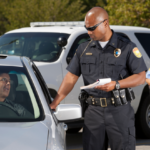Riding a motorcycle can be a “Born to Be Wild” experience. But it also comes with inherent risks. To protect against those, motorcycle insurance is designed to provide financial protection in case of an accident or theft and to help cover the costs of any damages or injuries that may occur while operating a motorcycle.
Before we get into whether or not you need insurance, let’s talk about the inherent risks associated with motorcycling:
- Lack of protection: Unlike cars or trucks, motorcycles offer little protection. Riders risk being thrown from the bike or colliding with other vehicles or road hazards. Those without helmets are even more susceptible to serious injury.
- Weather conditions: Exposure to elements — like wind, rain, wind, ice, and snow ‚ make it harder to control a bike and increases the risk of accidents.
- Road conditions: With fewer wheels, motorcycles are super susceptible to potholes, gravel, uneven pavement, and debris. These can cause even the most experienced rider to lose control.
- High speed: We love that motorcycles go fast — but even a minor mistake can be catastrophic when traveling at high speeds.
- Visibility: It’s easier to spot a car or SUV in your rear-view mirror than it is a motorcycle. That can lead to accidents caused by other drivers, even if the motorcyclist obeys all the rules of the road.
So, Do I Really Need Motorcycle Insurance?
The answer is a resounding yes. You’re required by law to have motorcycle insurance if you live anywhere in the USA — except in Florida. And, while Florida doesn’t require riders to purchase motorcycle insurance, you still need to prove financially responsible for any damages or injuries caused while operating your motorcycle. So, the question is not whether you’re required to have motorcycle insurance; it’s why wouldn’t you?
Here’s What Motorcyclists Need To Know About Coverage.
If you’re considering motorcycle insurance, it’s important to understand what it covers and what it doesn’t. Let’s look at the basic categories of motorcycle insurance available.
Liability insurance
If you’re found to be responsible for an accident while riding your motorcycle, liability insurance will cover damages caused to other people or property up to your policy limit. This includes the costs of the other vehicle and the costs of medical bills for injuries caused by you to the other driver, their passengers, or any pedestrians up to the policy’s coverage limits. If it goes to court, liability insurance covers legal representation and court costs. In most states, you could face fines, license suspension, or legal action if you’re caught riding without liability insurance.
Collision coverage
Optional collision insurance is recommended if you want to cover the cost to repair or replace your motorcycle resulting from a collision — not just the other guy’s vehicle. And it’s not limited to auto accidents. It also covers collisions with trees, guardrails, poles, or stuff lying on the road. As you know, even in a minor accident, motorcycles can be totaled, and if you’re lucky enough that your bike can be repaired, it can be extremely expensive. What’s more, if you’ve financed your motorcycle, your lender also has a stake in the ride and may require this coverage.
Comprehensive coverage
This policy is also optional and covers motorcycle damage caused by something other than an accident — like fires, floods, hail storms, theft, and vandalism. Without comprehensive coverage, you’ll pay out of pocket if your motorcycle gets busted up or stolen. Some comprehensive coverage policies also offer emergency roadside service, so if your bike breaks down while you’re on a ride, a service technician can come out to help or tow your bike, if necessary.
Uninsured and underinsured motorist coverage
Accidents can happen, and they happen a lot with drivers who don’t have liability car insurance, don’t have enough insurance to fully cover all damages, or have insurance with a company that denies coverage or goes out of business. Even worse, you could be the victim of a hit-and-run. Uninsured and underinsured motorist coverage can cover a wide range of expenses, including medical bills, lost wages if you can’t work because of the car accident, property damage, Pain and suffering, and compensation for funeral expenses. It can also protect any passengers injured in the accident.
Medical payments coverage
Medical payments coverage, aka MedPay, does what it sounds like: it makes sure medical bills for you and your passengers get paid after an accident. It can help with things like ambulance transfers, x-rays, surgery, hospitalization, follow-up visits with doctors or specialists, dental and chiropractic treatment, prosthetics, and even funeral expenses. It’s considered no-fault coverage, meaning it provides this coverage regardless of who is at fault for the accident. Maine and New Hampshire are the only states requiring bikers to carry medical payments coverage, but even if it isn’t required where you live, consider it a good investment and an affordable way to cover your medical bills.
Personal Injury Protection
Also called “PIP,” this protection is similar to MedPay coverage but is required in more states. It’s a more comprehensive type of insurance and covers a wider range of expenses, including lost income if you’re unable to work due to your injury, replacement services if your injury makes it difficult to perform essential tasks like cleaning and child care, psychiatric treatment, physical or occupational therapy, and rehabilitation. In most cases, PIP covers expenses for your motorcycle passengers as well. And like MedPay, it’s no-fault — doesn’t matter who caused the accident, you’re still covered.
What About Helmet Laws?
Navigating motorcycle insurance in states where helmet laws vary can be challenging. Some states require all motorcyclists to wear helmets while riding, while others have less strict helmet laws for riders over a certain age. And some have no helmet laws at all. If required where you live, insurance policies may have more comprehensive coverage options for medical expenses protection. And they may be more limited in states where helmets are not required. Be careful, though, if you’re not wearing a helmet when you should be and get involved in an accident, your insurance company could deny medical expense coverage entirely.
How Much Is Motorcycle Insurance?
The cost of motorcycle insurance, like auto insurance, depends on which types of coverage you request and what your deductible is. But many other factors impact your premium. Here are just a few:
- Your age and driving record: Just like car insurance, age and experience affect the cost of your motorcycle insurance. This includes any claims, accidents, and tickets you’ve had driving a car, too.
- How you ride: Are you riding for fun, or will you use the bike to go to work or school? Rates are generally lower for motorcycles used every now and then.
- The location where you will ride most frequently: Urban areas may have different rates than suburban and rural areas.
- The length of the motorcycle season is where you live. Areas with wet, cold winters may have less expensive, half-year policies available.
- The age and make of your bike: As you can imagine, coverage for an older bike will be cost than it does to insure a brand-new, top-of-the-line model.
Get Your Motor Runnin’
Got more questions about bike or rider insurance? Just give us a holler or reach out to one of our friendly agents. We’re happy to help! Or, if you are ready to get a quick motorcycle insurance quote, let’s get started.









